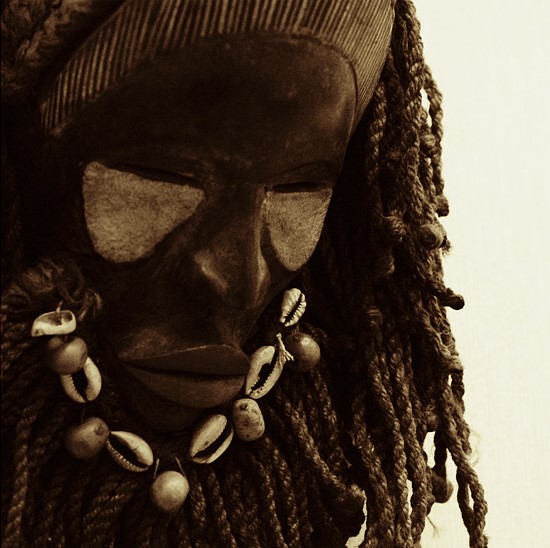He stood about five and a half feet tall with an oversized backpack, a menacing look, deep red eyes, and a rocket-propelled grenade launcher. He was directing fleeing civilians at a makeshift NPFL checkpoint decorated with human skulls in the suburb of Voinjama, Lofa County where opposing rebel forces, ULIMO-K, were pushing against Charles Taylor’s NPFL rebels.
He pulled my sisters and me aside, yelling to his colleagues, “Ley pekin look like Mandingo boy.â€
He grabbed me by the ears and said, “I’ll cut your ear.â€
He went by the name of Yanquoi Gboh.
My sisters and I survived that encounter, but not without our share of physical and emotional scars. More than 100,000 people were killed in Liberia as the result of ethnic cleansing during that era. They belonged to tribes such as Gio, Mano, Mandingo, Krahn, and Americo-Liberians, just to name a few.
As much as I want to forget the man with the menacing red eyes and the ugly tribalism he represented, those memories came flooding back recently while reading coded tribalistic comments made on Facebook.
First, a little background: Just days after Liberia’s main opposition leader and football legend George Weah announced his candidacy for president, breaking news from Atlanta, Georgia revealed accusations against Weah for refusing to pay child support to Meapeh Gono Glay, the mother of his 10-year-old-daughter.
Hints of an arrest warrant intensified the drama, and, according to a Voice of America article, some believe that the child support petition filed by Gono Glay was politically motivated to diminish Weah’s popularity before the election.
This story has riled the emotions of George Weah’s supporters and detractors alike. Weah’s supporters resorted to verbal attacks — name calling — against Gono Glay. This, in turn, caused a backlash from her supporters.
A headline on AllAfrica.com says it best: Weah’s ‘Baby Mama’ Drama Dominates the Liberian Media.
As far as I’m concerned, the lady has every right to take Weah to court, and I hope she gets the necessary support required to take care of her child.
As for the coded tribalistic overtone, a member of the Alternative National Congress party, Taa Wongbe, implied that he and Gono Glay are from the same county. Thus, any attack on her by Weah’s supporters, such as name-calling, is an attack on the entire Nimba County.
Wongbe impishly stated, “I spoke to some prominent Nimbaians this week, and they have expressed that any attack on their daughter will be considered an attack on Nimba County! We are watching!â€
This statement sent chills down my spine, bringing back memories of Liberians who have used tribal politics in the past to browbeat or ignite tension.
I’m not alone in this interpretation. Many Liberians were angered by this statement, seeing it as tribalistic — just as I did. They, too, remember the horrors of the not-so-distant past. Understanding that tribalism is the root of Liberia’s problems, Wongbe’s comments are troubling.
This is a case that should be handled between two people and the family law court in Georgia. We should all be angry when a man refuses to take responsibility for his child or children, but no one should use it as a means to score political points and incite chaos in a fragile nation like Liberia.
In his essay entitled The Challenge of Ethnicity and Conflict, Joseph S. Sherman rightfully examined the root of Liberia’s tribal politics:
The problem of ethnicity in Liberia is linked with the question of competing loyalties. Since the coup d’etat of 1980 and the upsurge of the civil war in 1989, ethnic competition for the scarce economic resources and political power has taken root among ethnic groups; each group tends to fight to have a president come from their group.
Nimba has been a kingmaker in the last two elections partly because of its large population. So the dispensation of favors, sense of belonging and loyalty are manifested in an election circle. Like the rest of the country, the people of Nimba have endured more than their fair share of suffering —they deserve the right to be properly informed.
Liberia has a long history of tribalism. There’s nothing wrong with identifying with one’s heritage or tribe, but words matter especially in an illiterate society like Liberia where the default action is violence.
At the same time, it’s very easy to gain a following in Liberia as people are completely despondent. For far too long Liberians have been used by politicians along tribal lines, and the results have been both economically devastating and deadly.
Injecting tribalism in any discussion has the propensity to rehash our turbulent past. United Nations peacekeepers will be leaving soon after the elections, and talks of tribalism only widen the gaps that divide us.
Featured photo by Flickr’s ankledeep



